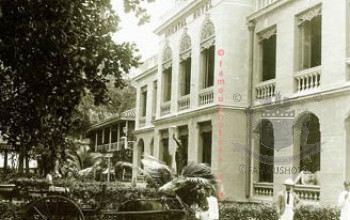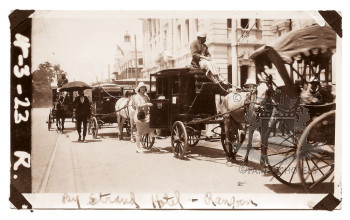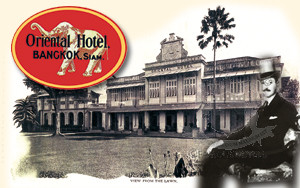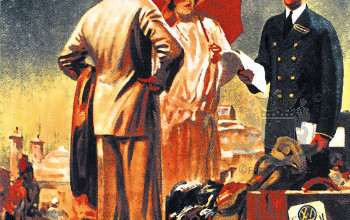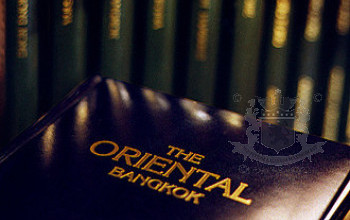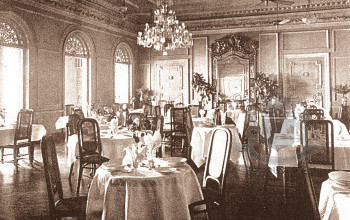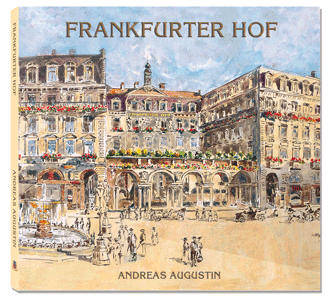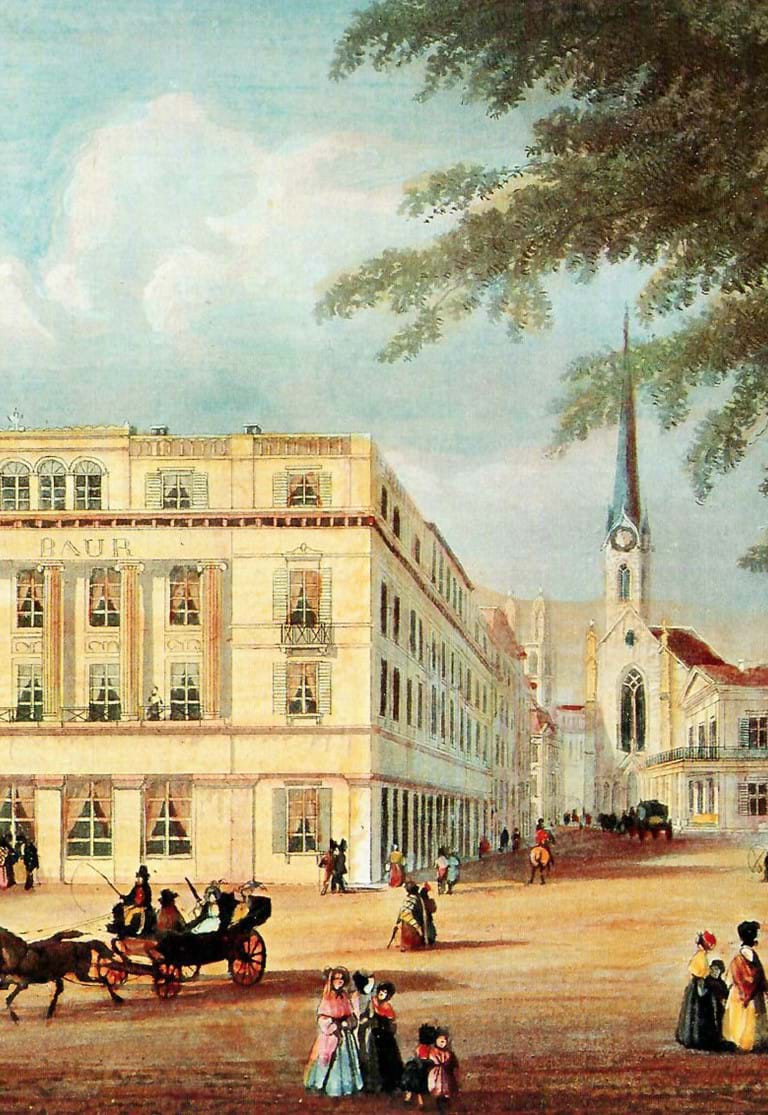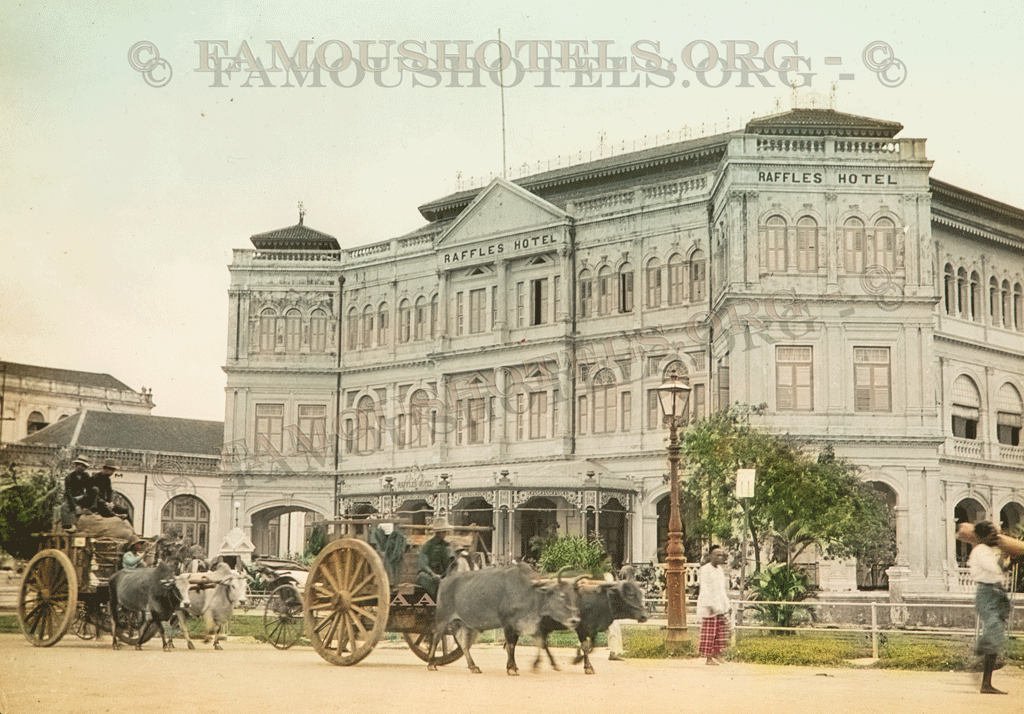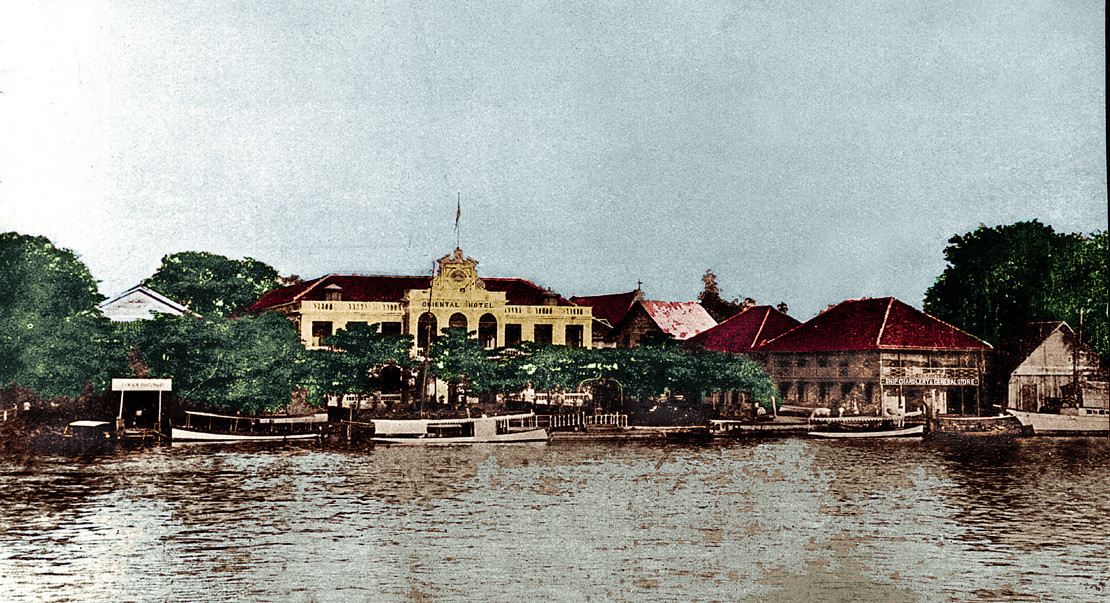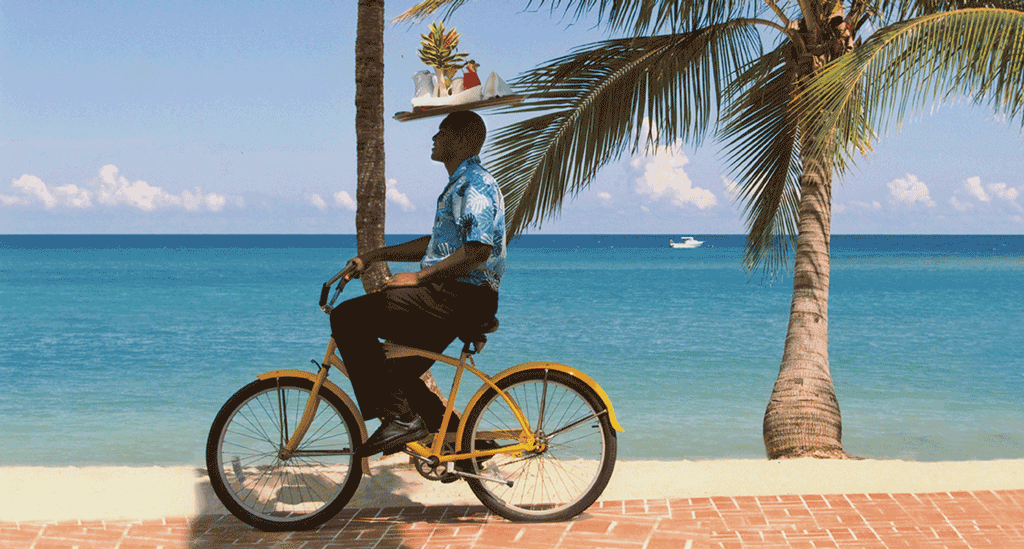The Lenox: Meeting Jimmy Fisher
( words)
Andrew Williamson | An American Essay
As I stride across the carpeted lobby of Boston’s Lenox Hotel I am clamped firmly on the wrist. What can I have done? Has my past caught up with me? ‘Good afternoon, sir. Welcome to the Lenox.’ I look down and realise that I have in fact been locked in a double-handed grip of welcome. I look up and am met by the shining visage of Jimmy Fisher. Jimmy (right) is a Lenox legend. He first came to work at the hotel, located at Exeter and Boylston in Boston’s Back Bay district, in 1949 and has been glad handing guest sever since. ‘I was born in England, you know,’ he says with his disarming charm. And suddenly I feel part of the Lenox family. Jimmy’s half century with the hotel may be a record, but his long service is not unique. During my stay I soon find that staff with five, 10, 15, even 20 years service are commonplace. Gia, for instance, runs the restaurant up the road at the hotel’s sister property, the Copley Square. When I pop in for breakfast she tells me: ‘sometimes, when I’m not working, I still call in here just to make sure that everything is all right. You see, the people here are like my family. In fact my husband says I’m more wedded to my job than to him!’ It is this sense of familiarity, of belonging that defines the Lenox. It has a family feel about it. And not surprisingly, for the hotel is owned and run, hands on, by the Saunders family. Jeffrey, the current helmsman, meets me in his office overlooking the finishing line of the Boston marathon. He embodies the hotel’s characteristics of openness and informality. The Lenox, Jeffrey explains, dates back to 1900 when it was hailed by the Boston Sunday Post as ‘Boston’s Waldorf-Astoria’.
To underline this claim it later boasted Lucius Boomer, the president of the New York legend, on its board. The hotel was named after Charles Lennox, Duke of Richmond, a supporter of the American colonists in the run up to the War of Independence. It cost US$1.1m to build and was equipped with 300 bedrooms – all with the new wonder of the age, a telephone – 200 bathrooms, a palm court and a rooftop garden. The roll call of famous guests, the true test of any historic hotel’s pedigree, runs from Enrico Caruso to Judy Garland to John Travolta. Boston is certainly no stranger to hotels with a rich history. It is after all home to the Parker House, which introduced the European Plan style of dining – where guests pay only for required meals – to America and a much-copied roll. It has seen Ellsworth Statler come to town to work his magic and by 1948 also numbered the Ritz-Carlton and the Copley Plaza among its grandes dames. It was in that year that Jeffrey’s grandfather, who was in real estate, found himself with a hotel on his hands: the Copley Square. It was a foreign world to him, but his son soon got the wonderful world of hotels into his blood. Indeed his son made such a success of running the Copley Square that the owners of the Lenox asked him to help them out. In 1963 he ended up buying the hotel from them. The Lenox has remained in the Saunders family ever since. ‘Being independent,’ says Jeffrey, ‘gives us an extra dimension. We rely heavily on word of mouth and guest loyalty.’ There has been no shortage of big companies trying to court the Lenox. ‘However,’ muses Jeffrey, ‘they invariably want more than they give.’ Similarly, despite being on the register of Historic Hotels of America , the Lenox has not applied for listed status. ‘Despite the tax breaks it also means having our hands tied in many areas.’ Jeffrey admits that the biggest challenge ahead is preserving the hotel’s sense of history while updating it to accommodate modern technological developments. But people make a place and, as long as the Lenox retains its family feel, its success seems assured. As I make my way across the carpeted lobby for the last time I am met again by Jimmy’s indefatigable cheerfulness, another grasping handshake that implore me to stay and the parting words: ‘It’s been lovely having you to stay, sir. Have a safe journey back to England. Did you know I was born in England?’


